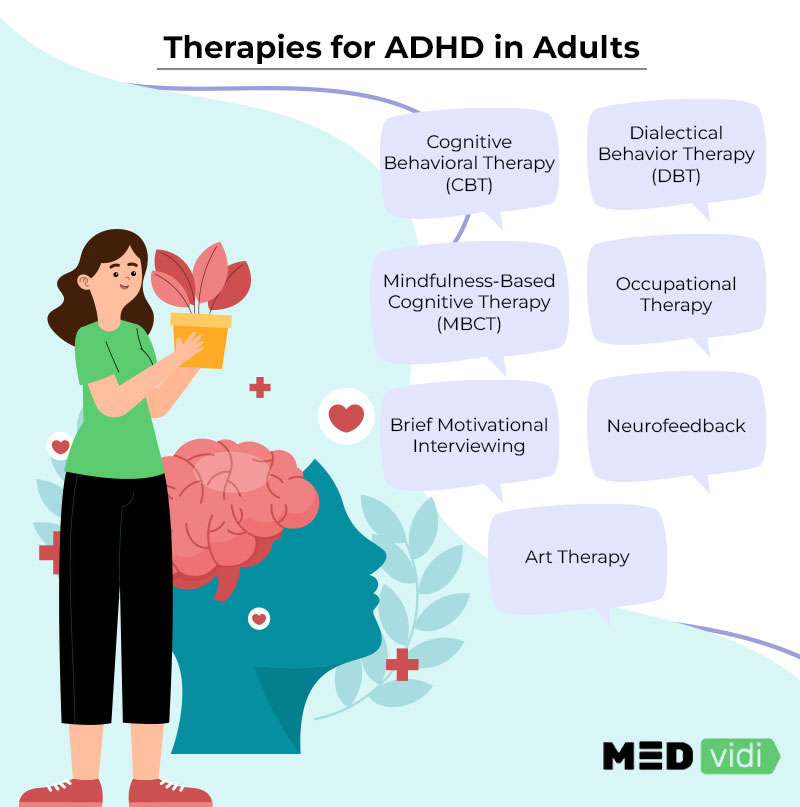The Benefits of Tailored ADHD Therapy Strategies for Better End Results
The execution of individualized ADHD therapy plans has arised as a crucial strategy in improving therapeutic results for individuals affected by this problem (ADHD treatment). By identifying the special manifestations of ADHD in each person, these personalized interventions advertise greater engagement and inspiration, ultimately leading to much more efficient coping techniques.
Understanding ADHD Variability
Although Attention-Deficit/Hyperactivity Disorder (ADHD) is usually regarded as a particular condition, its indications can differ substantially amongst individuals. Sex differences also play a duty, as males are more often identified with ADHD and typically present extra overt signs, whereas women may provide with much less noticeable inattentiveness.
Additionally, individuals with ADHD may experience a spectrum of psychological and behavioral obstacles, such as anxiousness or oppositional defiance, that can make complex diagnosis and treatment. It is additionally worth keeping in mind that ADHD can offer in a different way across numerous social contexts, affecting exactly how signs are acknowledged and resolved.
Key Parts of Personalization
Personalized ADHD treatment plans are grounded in numerous vital elements that make sure efficient management of the problem. An extensive evaluation is vital, including standard rating scales, meetings, and behavior monitorings. This detailed analysis permits clinicians to understand the person's distinct symptoms, toughness, and challenges.
Second, the involvement of multiple stakeholders, consisting of moms and dads, instructors, and the individual, adds to a holistic sight of the individual's needs. Cooperation cultivates a helpful setting that can adapt to the person's context and way of living.
Third, therapy strategies ought to be adaptable and adaptable, permitting for alterations based on recurring comments and the individual's advancing requirements. This versatility makes it possible for the integration of various healing techniques, such as behavioral treatments, psychoeducation, and medicine management.
Furthermore, cultural and contextual factors need to be thought about. Acknowledging the individual's history, values, and choices makes certain that the treatment matters and respectful.
Lastly, normal follow-ups and assessments are important to keep an eye on progress and make needed changes. By concentrating on these key elements, individualized ADHD therapy strategies can significantly enhance the performance of treatments, causing enhanced outcomes for people with ADHD.
Enhanced Involvement and Motivation
To efficiently advertise improved involvement and motivation in people with ADHD, it is important to incorporate techniques that resonate with their rate of interests and toughness. Customized treatment plans that straighten with an individual's interests can bring about enhanced participation in healing tasks, cultivating a feeling of possession and enthusiasm for the procedure.
Making use of interactive and creative approaches can also significantly enhance inspiration. For instance, incorporating gamification aspects or real-world applications of abilities can make jobs more appealing and pertinent. This not just captures focus yet additionally enhances finding out via satisfying experiences.
Moreover, establishing attainable and purposeful objectives customized to the person can boost inspiration. When people see their development in the direction of personally significant purposes, they are most likely to stay engaged. Routine feedback and recognition of accomplishments can even more suffer motivation, creating a favorable feedback loop that urges continued effort.
Last but not least, promoting an encouraging atmosphere where individuals feel understood and valued can dramatically influence their engagement degrees. When therapy strategies are established collaboratively, including input from the person, they are most likely to feel bought their trip, ultimately bring about improved results in taking care of ADHD.
Improved Coping Strategies
Establishing improved dealing strategies is crucial for individuals with ADHD, as it equips them with effective tools to browse everyday challenges. A tailored therapy strategy enables the identification of certain coping systems customized to the individual's special needs and situations - ADHD treatment. Techniques such as mindfulness, time administration abilities, and business approaches can be incorporated into everyday routines, fostering a Check Out Your URL sense of control and read what he said decreasing stress and anxiety
Mindfulness practices, including reflection and deep-breathing exercises, assistance people with ADHD focus their attention and manage their feelings. Time management methods, such as making use of timers or damaging jobs into smaller sized, convenient actions, can mitigate feelings of overwhelm. Furthermore, organizational tools like planners and lists can enhance effectiveness and responsibility.
Long-lasting Favorable End Results
Executing customized ADHD therapy strategies can bring about significant lasting favorable end results for individuals. These tailored strategies, which think about unique symptoms, preferences, and life scenarios, promote much more efficient monitoring of ADHD signs gradually. By concentrating on the particular demands of the person, these plans enhance adherence to treatment protocols and foster greater engagement in therapeutic activities.

Moreover, personalized therapy plans can considerably minimize the risk of comorbid conditions, such as stress and anxiety and clinical depression, which are typically related to ADHD. Early intervention and regular support help individuals develop durability and coping approaches, advertising total mental health.
Ultimately, the long-lasting favorable end results of customized ADHD treatment plans find out not just improve the quality of life for people but likewise add to their total health and success in different life domain names. This holistic method highlights the importance of customized care in taking care of ADHD efficiently.
Conclusion
